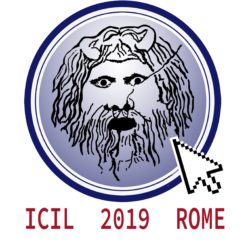 Prof. Athanasia (Nancy) Pouloudi
Prof. Athanasia (Nancy) Pouloudi
Associate Professor in Information Systems Management in the Department of Management Science and Technology at the Athens University of Economics and Business (AUEB), Greece. Her current research focuses on organizational and social issues in information systems adoption, implementation and management.
Digital technology: emancipating or binding?
Abstract
In a continuously changing technological landscape, individuals are enabled to co-exist in or cross boundaries among their personal, work and social spaces. We call this possibility digital emancipation. At face value, this occurs quickly and easily, facilitated by a diverse set of technologies including mobile devices, social media, cloud computing, internet of things, intelligent technologies and others. At the same time, this ease creates expectations and places new pressures on individuals. For example, they are expected to be always ‘on’, always present, always available. In certain cases, therefore, digital technology may be binding rather than emancipating. People find themselves increasingly in situations where they have to manage the challenge of their online and offline presence across different contexts and domains. This presentation considers several examples that showcase the opportunities and challenges that arise in different areas of human activity as a result of digital technologies. This leads to the realization of a need and an opportunity to revise our research agenda, bringing the human agent – rather than the technology or the organization sponsoring or hosting the technology – to the foreground.
 Prof. Vincenzo Caretti
Prof. Vincenzo Caretti
For unfortunate reasons Prof. V. Caretti’s speech has been deleted

Prof. Mauro Barberis
Professor of Philosophy of Law at the University of Trieste. He is a jurist, a theorist of law and a historian of ideas. He is a columnist for Il Secolo XIX, and collaborates with the magazines Il Mulino and Critica Liberale and runs a blog on Il Fatto Quotidiano and another on MicroMega.
Three explanations of (e-)populism:
Homo oeconomicus, Homo psychologicus, Homo digitalis.
Abstract
From 2016 onwards there is a growing discussion on a populist waves that would be overwhelming the most consolidated Western democracies.
My goal, here, is just to comparing three current (models of) explanations of populist waves: let’s call them Homo oeconomicus, Homo psychologicus, and Homo digitalis. I shall maintain that such explanations aren’t alternative but complementary: each of them does explain different features of populism. In my opinion, however, the new, distinctive and decisive aspect of today’s populism is the advent of internet: without Homo digitalis Brexit, Trump’s victory, the Italian yellow-blue government would be inexplicable. It is precisely for this reason that I propose to apply to different Western populisms a common label: e-populism.
